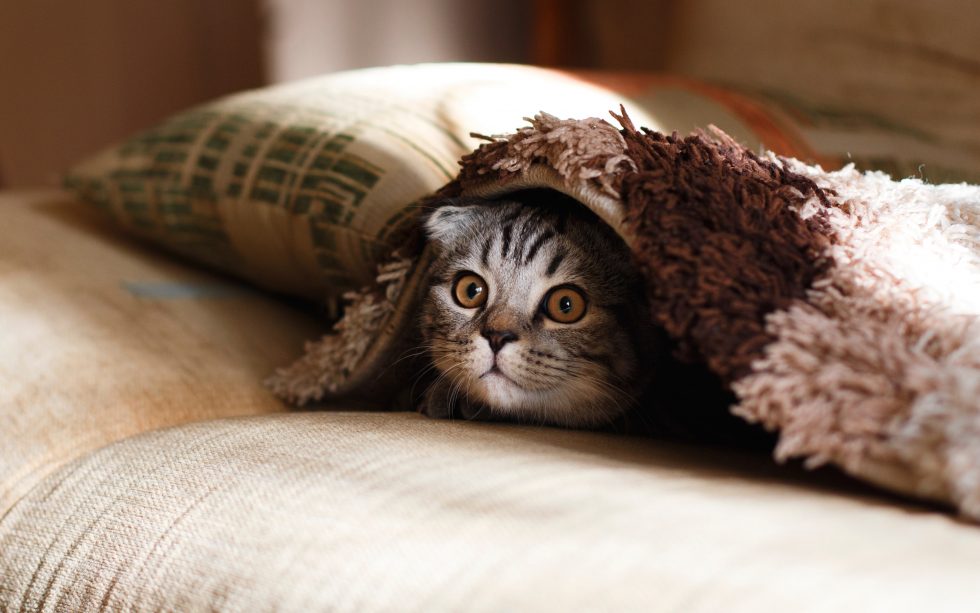Stress in Cats: Helping Your Feline Cope

Stress is one of the most frequent symptoms affecting cats' health and behavior, but it can often be difficult to tell whether or not something is wrong.
Is your cat under stress, or is your cat just acting like a cat? The veterinarians at Animal Care Center of Castle Pines are experts in caring for cats. We can identify the symptoms of stress in cats, and find a solution for helping your feline cope.
How to Recognize Stress in Cats
Cats exhibit stress in different ways: sometimes behaviorally, sometimes physically. If your cat deliberately urinates outside the litter box, they may be trying to tell you that they are stressed or angry. Cats are very picky about their environments, and inappropriate urinating or scratching is one way of showing that they're unhappy. Stress sometimes manifests as digestive issues-diarrhea and reduced appetite can both be a sign of stress in cats. Behavioral changes such as hiding, clinginess, and over-grooming indicate that your cat is experiencing high levels of stress.
Understanding What Causes Stress in Cats
Environmental factors are some of the main stressors in cats. Cats are territorial, and they will become bored if they do not have enough space to roam. Cats are easily stressed by other animals-especially other cats-in their territory. This can extend to the other animals and cats they see through the windows. Loud or sudden noises also impact a cat's environment. Construction next door or a rogue car alarm outside are noises that could cause stress for your cat.
Cats do not cope well with changes to their environments or schedules. Remodeling or moving to a new home can be very stressful for cats. Changes to the household could be equally stressful-adding a new family member or roommate, long-term guests, and house parties might make your cat feel threatened. Cats can also become stressed by changes in daily routines, such as veterinary visits, vacations, or alterations to your work schedule. They may need extra amounts of attention from you during these types of transitions.
Helping Your Feline Cope
Cats are active, intelligent, curious creatures and play serve many important functions. Play provides exercise and mental stimulation and helps your cat release anxiety and aggression. Some cats like to climb, others like to scratch, others like to hunt and pounce. Get to know your cat's personality, and be sure to provide for their unique play needs when you're away from home.
You can make your home more cat-friendly by creating a safe, yet stimulating environment for your cat. Adequate food and water bowls are a must-sometimes one of each is not enough! Cats often prefer to have more than one spot to locate food and water. A clean, easily accessible litter box is another necessity. Tidiness is paramount for cats! Make sure the litter box is always available-for example, don't keep it in a laundry room or bathroom where the door might be closed to your cat. Finally, set up a safe, quiet hideaway. Cats need a place to retreat, especially if there are other pets in the home. A cozy nest that's safe for naps is vital to a cat's comfort.
Contact Us
Never give your cat any medicine, unless it is prescribed by your vet! If you think your cat is experiencing stress, reach out to us here at Animal Care Center of Castle Pines. We are an accredited member of the American Animal Hospital Association, and we practice the highest standards of veterinary care. Each pet is unique, and we customize each appointment to their needs, by utilizing low-stress methods, lots of love and treats, and keeping them with you throughout their visit.

